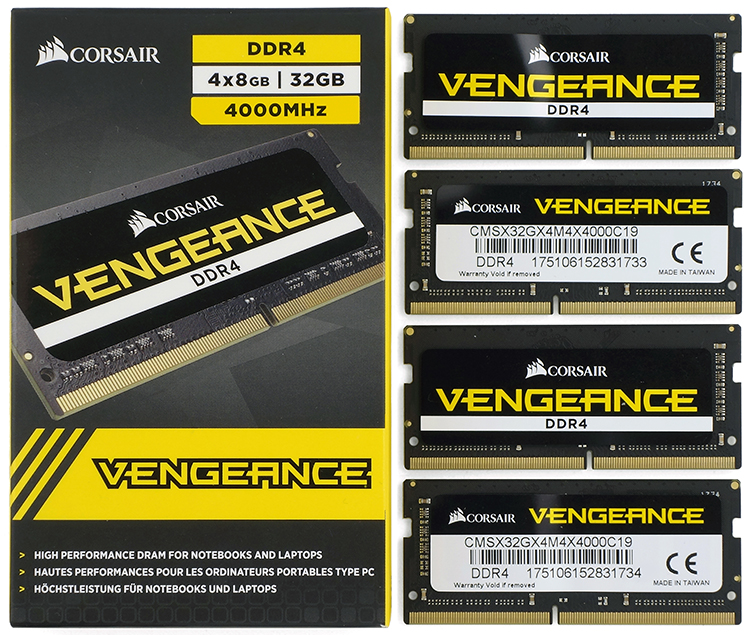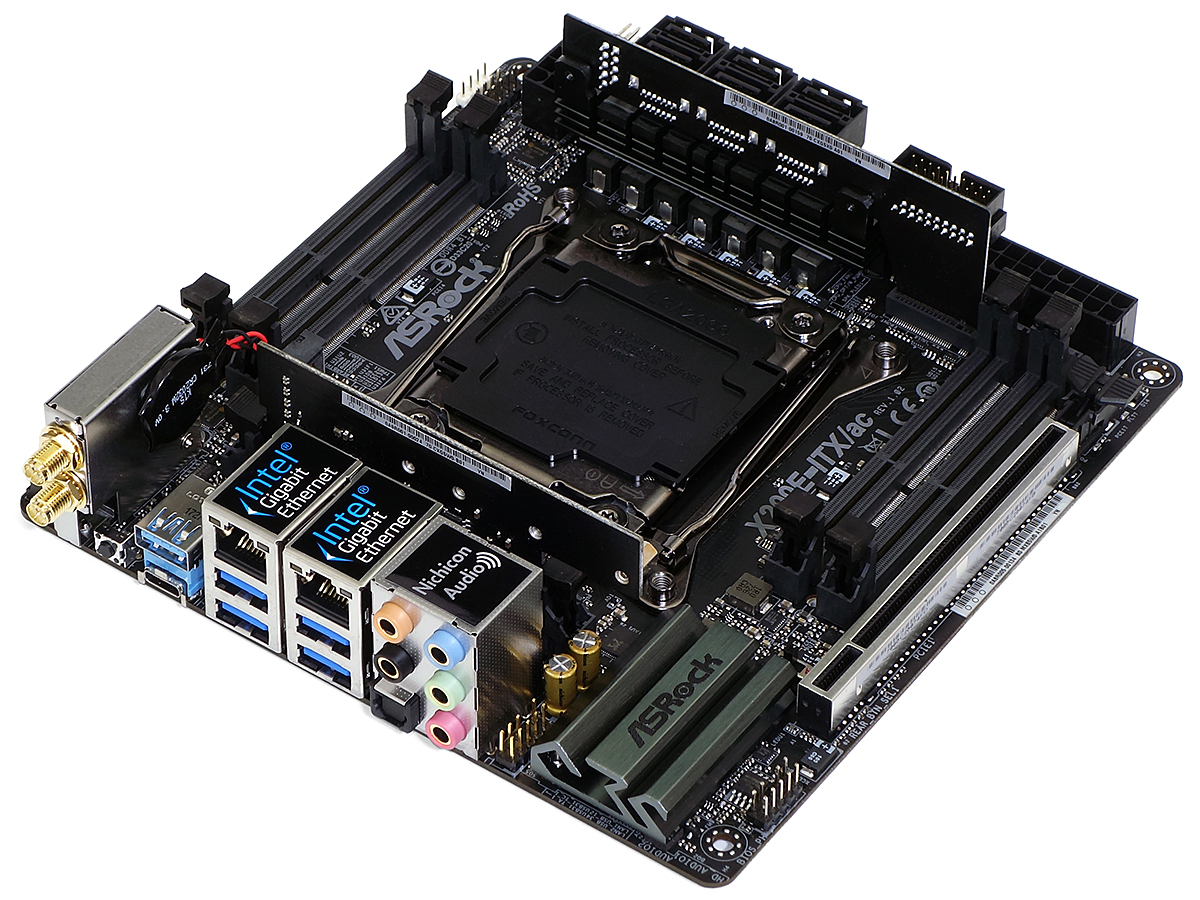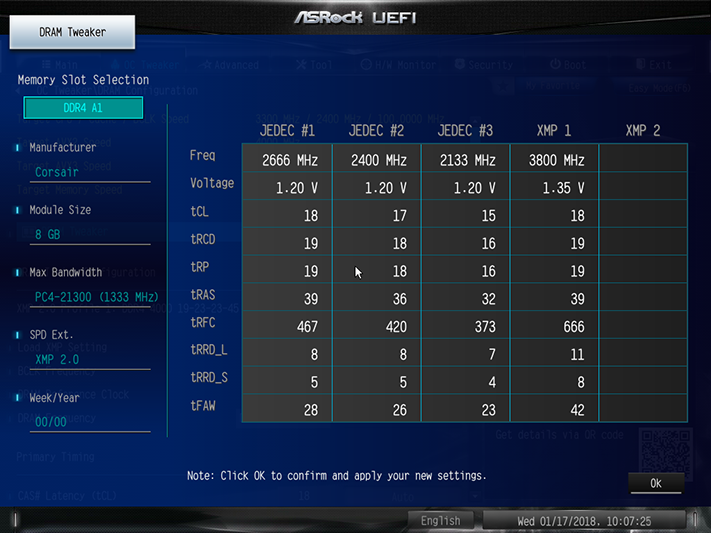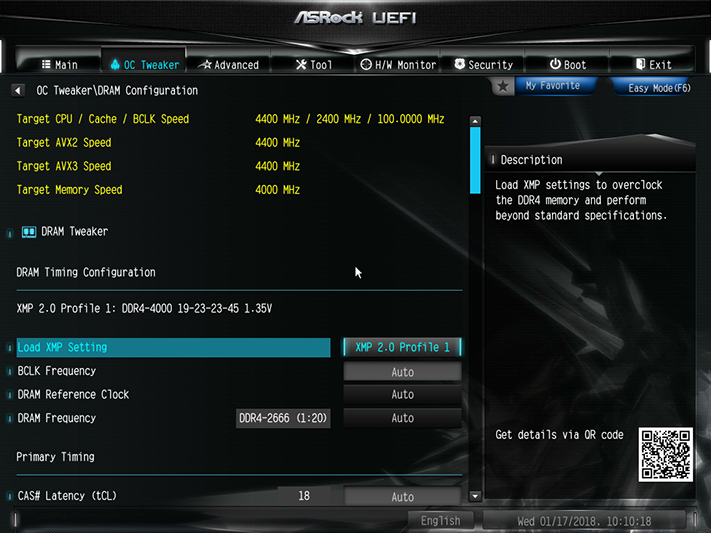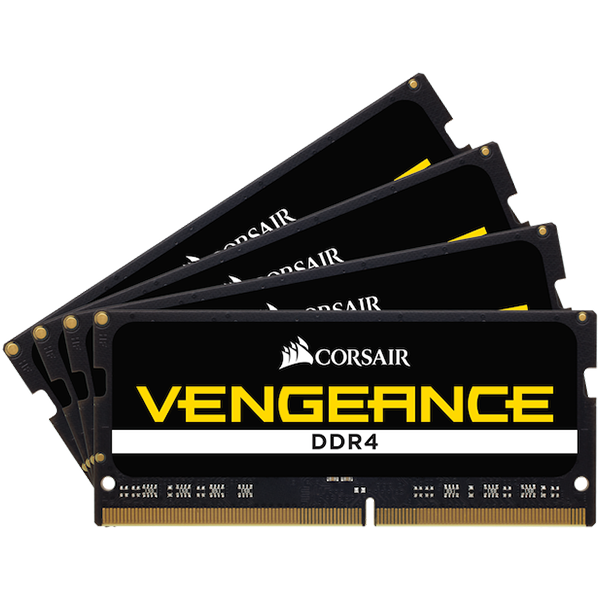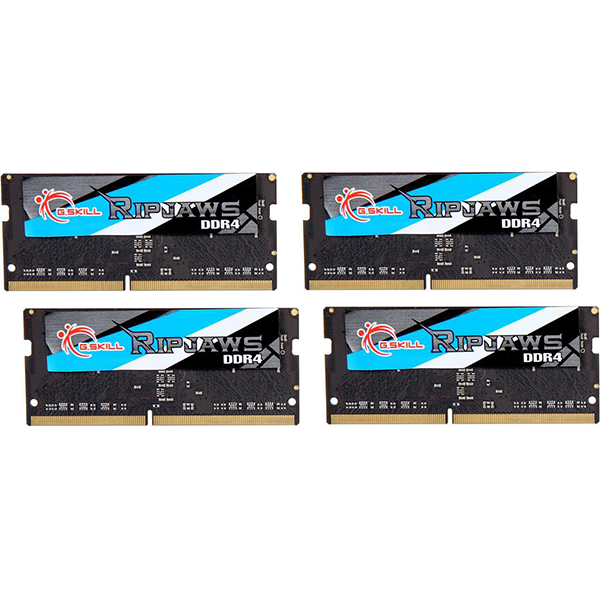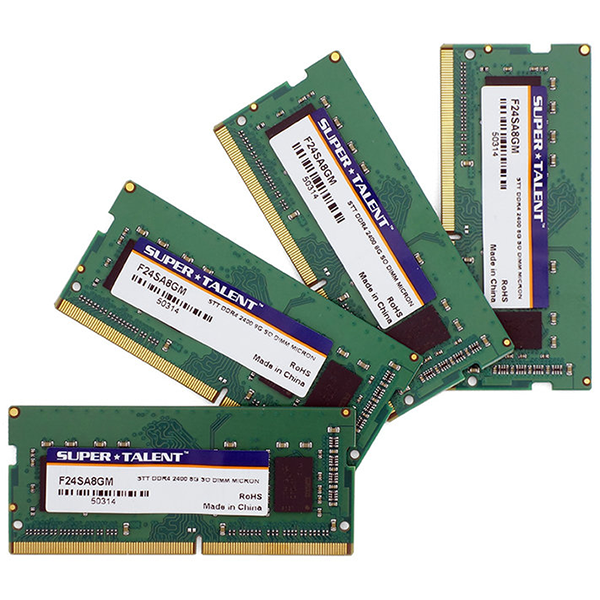Early Verdict
Corsair’s CMSX32GX4M4X4000C19 Vengeance DDR4-4000 32GB SODIMM kit is a great alternative to the competing DDR4-3800 kit.
Pros
- +
Super-fast DDR4-4000 rating
- +
Good beyond-spec overclocking capability
- +
Current retail price undercuts closest competitor
Cons
- -
Mediocre timings for this frequency
- -
Expensive
Why you can trust Tom's Hardware
The Modules & The Math
Every so often a new memory kit comes out that makes us go "hmmmm," yet we can always find at least one benchmark to justify its existence. Such was the case with our recent DDR4-3800 review, and Corsair would like to show us a better path with its DDR4-4000 SODIMMs.
We should qualify that these short modules will only work with K and X series desktop processors, and that while we’re sure someone has released a “mobile workstation” or “mobile server” with the right specs, we’re not certain that any of those boards will ever have the firmware functionality to support anything nearly this fast at full speed. Instead, we’re left to consider the one desktop board that is known to support DDR4 SODIMMs and overclocking: the ASRock X299E-ITX/ac.
Unlike DDR4-3800 that runs at 19x 100MHz, DDR4-4000 runs at 15x 133MHz. Lower multipliers tend to be easier to use on some processors, so there’s at least a little hope of expanded compatibility. Unfortunately, that hope fades when one realizes how few boards and CPUs can run memory at DDR4-4000 without imparting errors (signal noise or degradation) that causes such high-speed memory to crash. Once again, we’re left with Skylake-X and, thus far, the X299E-ITX/ac.
In fact, the DDR4-4000 XMP setting isn’t even shown properly in the DRAM Tweaker menu of the X299E-ITX/ac. The strange thing is that the board does show it under basic XMP settings menus. Oh, and if you can’t run DDR4-4000, the DDR4-2666 SPD value is still a good starting point.
And now for a little more math: Because latency is measured in cycles, and cycle time is the inverse of frequency, DDR4-4000 CAS 20 would only be as “quick” as DDR4-3200 CAS 16 or DDR4-2400 CAS 12. That means the rated CAS 19 should be acceptable at DDR4-4000, but the tRCD and tRP timings of 23 cycles are fairly relaxed by enthusiast standards. We’re going to try to run this stuff at CAS 19 straight timings just to see if it’s still stable and performs better.
Specifications
We’re comparing Corsair’s Vengeance DDR4-4000 to G.Skill’s DDR4-3800, using Super Talent’s DDR4-2400 as a baseline. The Super Talent modules are relabeled Crucial DIMMs, but both manufacturers offer similar prices and similar lifetime warranties to Corsair and G.Skill.
We used our standard X299 motherboard testbed to evaluate today’s modules, adding the ASRock X299E-ITX/ac to make the comparison possible. Since ASRock’s current firmware uses “stability mode” settings when pushed past XMP settings, benchmarking the G.Skill modules at DDR4-4000 required the use of ASRock’s A-Tuning utility for Windows.
Get Tom's Hardware's best news and in-depth reviews, straight to your inbox.
| Benchmark Configuration | |
| Blender | Version 2.68a: BMW 27 CPU Render Benchmark |
| 7-Zip | Version 16.0:, THG-Workload (7.6 GB) to .7z, cmd line "a -t7z -r -m0=LZMA2 -mx=9" |
| F1 2015 | 2015 Season, Abu Dhabi Track, Rain: Ultra High Preset, 16x AF |
| Metro Last Light Redux | Version 3.00 x64: Very High Quality, 1920x1080, Very High Tesselation, 16x AF |
| SiSoftware Sandra | Version 2016.03.22.21: Memory Bandwidth, Cache & Memory Latency Benchmarks |
| Sound | Integrated HD Audio |
| Network | Integrated Gigabit Networking |
| OS | Windows 10 64-bit |
| Graphics Driver | GeForce 382.53 |
MORE: Best Memory
MORE: DDR DRAM FAQs And Troubleshooting Guide
MORE: All Memory Content
-
blackmagnum Now if we could upgrade the RAM chips on the graphics cards like the old days, I could see a clear benefit for these guys.Reply
